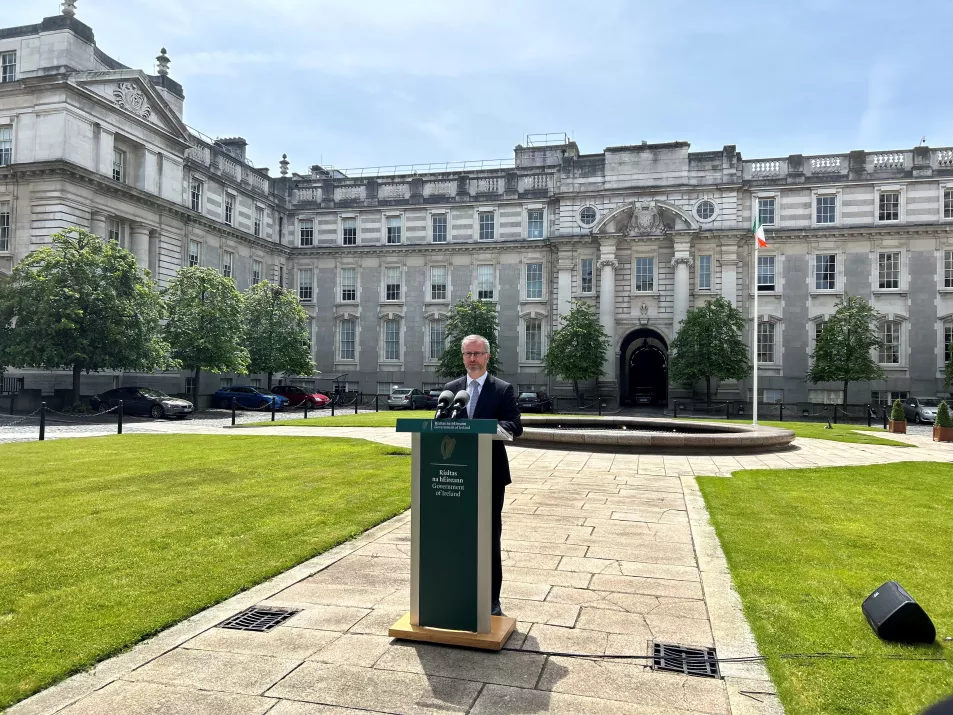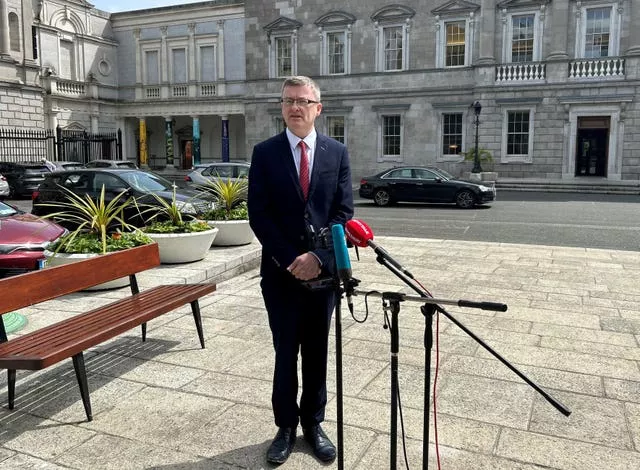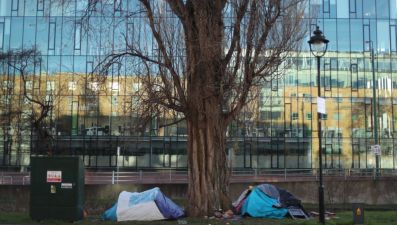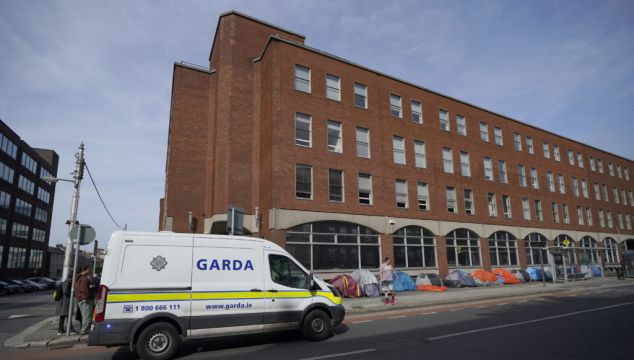Minister for Equality and Integration Roderic O’Gorman has said 259 international protection applicants are currently without accommodation.
He said the number of people on the “unaccommodated list” has fallen due to the reopening of Dolcain House in Clondalkin for international protection applicants.
Mr O’Gorman said: “It’s still too high, but we are working on it and when we are able to open more accommodation over the next week, we’ll be able to make further inroads into that number.”
Speaking to reporters at Government Buildings, the minister said the Department of Children, Equality, Disability, Integration and Youth is looking at floating hotels, or “flotels”, in its response to accommodating international protection applicants.

He said: “We do have to look at all options and ‘flotels’ can offer a safe accommodation for international protection applicants.”
The minister said he has “engaged significantly” with An Garda Siochana over the role of policing protests and blockades against migrant accommodation.
He said: “International protection applicants on the street are extremely difficult for An Garda Siochana to protect, so the more accommodation that we can open, the more people we can move into accommodation, the safer we can keep people.”
Mr O’Gorman said blockades had moved beyond legitimate protest.
He said: “I don’t believe blockading is acceptable, I don’t believe people in masks are acceptable.
“I think that goes far beyond any element of legitimate protest and I think it is disturbing to see people kind of wrapping the tricolour around themselves, because I don’t believe that’s what the very significant majority of Irish people believe in either.”
Asked if he agreed with Garda Commissioner Drew Harris that Ireland had not seen the same rise in the far right as other European countries, Mr O’Gorman said those groups had not seen the same political success as elsewhere.
He added: “But undoubtedly there is an organised and organising far-right movement in our country.
“I think it does remain small and they can use social media to overstate their influence, but it does exist in our country.
“I think it’s important that all of us across the political spectrum work and, I suppose, to ensure that we don’t see them making the sort of gains we’ve seen and converting this kind of initial sense into a political gain.”

Earlier, a Sinn Fein TD accused the Government of “appalling” lack of engagement with locals about migrant accommodation but said “nobody should have a veto” on who moves into their community.
David Cullinane said: “The lack of engagement with communities at times has been appalling – and I don’t believe that anybody should have a veto on who moves into a community.
“But there’s a difference between having a veto and consultation and what I would call engagement, which is sharing information and informing local communities and local politicians as to what’s happening.
“The lack of that engagement also creates an unnecessary frustration that wouldn’t be there if the Government was doing its job right.”
Mr Cullinane condemned attacks against migrants and people who are seeking international protection.
He said: “There is absolutely no place for intimidation of people who are coming here seeking international protection.
“I genuinely believe it is fundamentally wrong and it should not be happening.”
Mr Cullinane said it was also wrong to intimidate politicians, gardai and protesters campaigning for rights of migrants.
But he added: “But that doesn’t excuse the Government, in my view, from mistakes that they’re making.”

Mr O’Gorman said his department has engaged in 25-30 meetings with local representatives and residents’ groups about the accommodation of international protection applicants since January.
He said: “We have significantly enhanced our ability to engage and having Minister (Joe) O’Brien in the department has been hugely important in that.”
Mr O’Gorman said the Department of the Taoiseach is also working on a wider national communications strategy.







